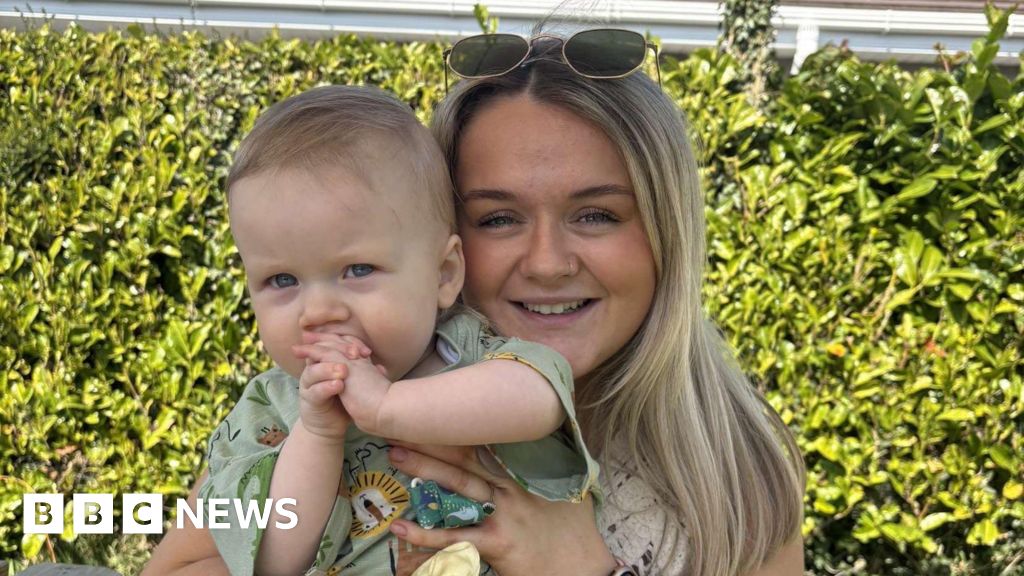Lifestyle
Milk Bank Urges Mothers to Donate for Premature Babies’ Health

The Human Milk Bank at the South West Acute Hospital in Enniskillen, County Fermanagh, is calling on mothers to donate breast milk. This unique service plays a crucial role in supporting premature and sick infants in neonatal units across Ireland. The Western Health Trust reported an increased demand for donor milk during the summer months, particularly when many potential donors are away on holiday.
Aoibh Comer, a recent donor, expressed her gratitude for the opportunity to contribute, stating her baby son Tádhg inspired her to help other infants. In an interview with BBC News NI, she shared, “I just knew I had to do it.” She learned about the milk bank through a Northern Ireland breastfeeding community group on social media.
Comer, who began donating milk in 2024, emphasized the importance of breast milk for babies in the Neonatal Intensive Care Unit (NICU). She remarked, “There is no substitute that completely matches breastmilk and the benefits babies in the NICU get from this is so beneficial for their wee growth.” As a former healthcare worker from Forkill, County Armagh, she is passionate about encouraging other mothers to consider donation. “I would say to anyone in a position to donate, please please do it,” she urged, praising the friendly and supportive team at the milk bank.
The benefits of human breast milk for premature and sick infants are well-documented. It aids in building their immune systems and supports brain and eye development. Moreover, it helps prevent conditions that can severely affect premature or low birth weight babies, such as gut ruptures, which can be life-threatening.
Impact and Demand for Donor Milk
The milk bank also assists mothers of multiples, such as twins, triplets, and quadruplets, who may struggle to produce enough milk. In 2023, the service supplied over 1,000 litres of donor milk to 27 hospitals across Ireland, benefiting 783 premature infants, including 223 who were twins or triplets.
Susan Rogers, lead nurse for public health at the Western Trust, highlighted the critical nature of the service. “The bank was indebted to the donor mothers who have provided breast milk to thousands of babies since the project launched in 2000,” she stated. Rogers noted the emotional impact of both donating and receiving breast milk, adding, “The reality is for very small premature babies, breast milk supports so much of their journey.”
In a personal account, Sarah Haugh shared her experience with her daughter, Emily, who was born at just 25 weeks. After starting Emily on her own breast milk, Haugh quickly filled her freezer and was encouraged by hospital staff to donate. Over seven months, she was able to contribute 58 litres of milk, describing the process as “incredibly easy” and “very rewarding.”
The Western Health Trust continues to appeal for new donors. Mothers interested in supporting this vital service can reach out to the Human Milk Bank team through their website. Their contributions could make a significant difference in the lives of many vulnerable infants across the country.
-

 Lifestyle2 weeks ago
Lifestyle2 weeks agoShoppers Flock to Discounted Neck Pillow on Amazon for Travel Comfort
-

 Politics2 weeks ago
Politics2 weeks agoMuseums Body Critiques EHRC Proposals on Gender Facilities
-

 Business2 weeks ago
Business2 weeks agoTrump Visits Europe: Business, Politics, or Leisure?
-

 Politics1 week ago
Politics1 week agoCouple Shares Inspiring Love Story Defying Height Stereotypes
-

 Lifestyle2 weeks ago
Lifestyle2 weeks agoJapanese Teen Sorato Shimizu Breaks U18 100m Record in 10 Seconds
-

 World2 weeks ago
World2 weeks agoAnglian Water Raises Concerns Over Proposed AI Data Centre
-

 Sports2 weeks ago
Sports2 weeks agoBournemouth Dominates Everton with 3-0 Victory in Premier League Summer Series
-

 Lifestyle3 weeks ago
Lifestyle3 weeks agoShoppers Rave About Roman’s £42 Midi Dress, Calling It ‘Elegant’
-

 World3 weeks ago
World3 weeks agoWreckage of Missing Russian Passenger Plane Discovered in Flames
-

 World3 weeks ago
World3 weeks agoInquest Resumes for Jay Slater Following Teen’s Tragic Death
-

 Sports3 weeks ago
Sports3 weeks agoSeaham Red Star Begins New Chapter After Relegation Setback
-

 World3 weeks ago
World3 weeks agoMatheus Cunha Celebrates Birth of Second Child with Teammate Support










